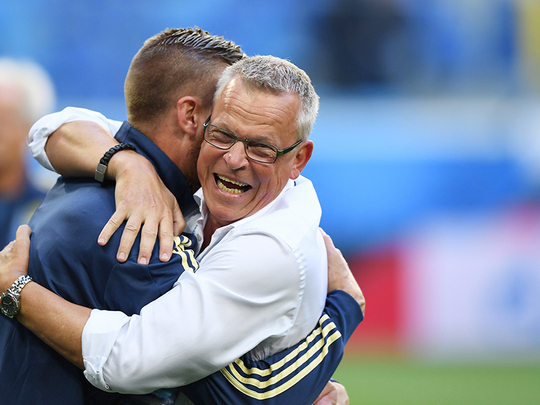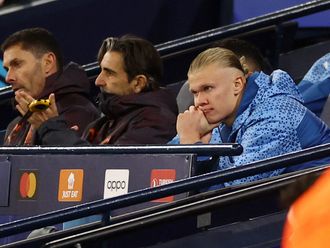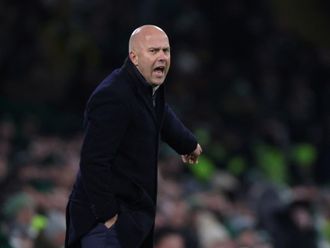
Move over Zlatan. Swedish football has a new hero and, while it would be hard to imagine a greater contrast between the brash egocentric Zlatan Ibrahimovic and Janne Andersson, their understated national coach, there was only one name being loudly chanted in St Petersburg last night ahead of playing England for a place in the World Cup semi-final.
“Oh, Janne, Janne! Janne, Janne Andersson!” Over and over it was sung, most vociferously by the several thousand Sweden fans who could not bring themselves to leave the Saint Petersburg Arena after a historic 1-0 win that also secured their first quarter-final since 1994. Andersson eventually re-emerged to take the ecstatic plaudits for a final time, before delivering a reminder to anyone in England who might still doubt their qualities.
“Whatever other teams and countries think is not terribly interesting,” said Andersson. “We know we are a good team. It is full steam ahead and we are going to put in a bloody good match on Saturday.”
A deflected second-half goal by Emil Forsberg had, ultimately, settled a match lacking in attacking quality but which, just for their sheer collective effort and organisation, Sweden deserved to win.
It was also a stark reminder of one great truism in football about the importance of a team over even the most gifted of individuals.
Rarely has that been more evident than in Russia these past three weeks.
Ibrahimovic, after all, might have scored 62 goals in 116 international games, but he was still never part of a Sweden team that went beyond the last 16 of a World Cup. Andersson was, naturally, reluctant to mention Ibrahimovic by name, but his repeated emphasis on the collective felt telling.
“If I am a symbol, I can live with that, but it is not one individual,” he said. “It is a team sport and this team personifies that.”
There was certainly plenty in Sweden’s approach from which Switzerland could learn.
Ranked sixth in the world, they rarely looked like turning a predictable dominance of possession around Granit Xhaka and Xherdan Shaqiri into goals or even clear chances. Phil Neville, summarising on the match for BBC, was especially critical in his assessment of Xhaka, who missed a chance to tackle Forsberg shortly before his shot deflected off Manuel Akanji for what was still a fortuitous winner.
“Disgraceful,” said Neville. “He cost his team the goal. He just lets him waltz across him.”
That was not an accusation you could level at Sweden who simply reinforced what was already been a formidable defensive wall. It all left Switzerland invited to launch a flurry of late attacks, but they rarely looked likely to equalise.
Indeed, Sweden nearly doubled their lead in the final seconds when Martin Olsson broke clear and was pushed over by Michael Lang.
The Switzerland defender was sent off and, only after a Video Assistant Referees review, was the incident deemed to have taken place outside the penalty area.
Sweden, though, were through and, having already helped eliminate Holland, Italy and Germany respectively, don’t be fooled by their individual limitations.
Whether the catalyst was the departure of Ibrahimovic or simply the arrival of Andersson, they are a team galvanised over these past two years. From the Switzerland coach Vladimir Petkovic, there was a further warning for England. “When they score, they are an extremely tough nut to crack.”










